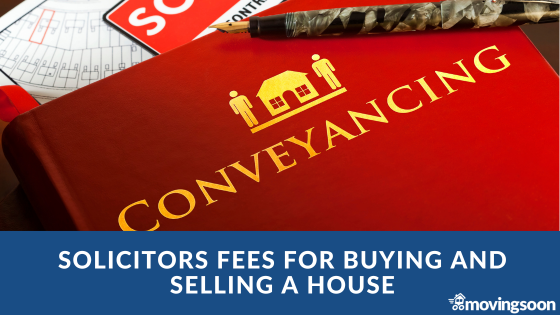Buying or selling a house is the biggest single transaction you are likely to make. It’s crucial to do your research and navigate the process with precision and care. When moving house the topic of solicitors’ fees comes with questions and considerations. Conveyancing solicitors (as they are known) play a pivotal role in the property transaction process. They ensure that all legal aspects are handled correctly. We will take a look at the solicitors fees for buying and selling a house in the UK. Hopefully it will provide you with insights into the costs involved and the value in using professional solicitors.
Table of Contents
Understanding Solicitors in the Property Transaction
Before we delve into the specifics of solicitors’ fees, let’s begin by understanding the role solicitors play in the property transaction process.
Conveyancing solicitors are legal professionals. They specialise in property law. It’s their responsibility to ensure that the buying and selling of properties are conducted in compliance with the law. They serve as intermediaries between the buyer and the seller. They handle various legal and administrative tasks to ensure a smooth and legally sound property transfer.
Solicitors Fees for Buying a House
When you’re buying a house, your solicitor plays a critical role. The fees you pay a conveyancing solicitor when buying a house will typically include:
- Conducting Searches: Solicitors conduct various searches to gather information about the property and its surroundings. This includes local authority searches, environmental searches, and water and drainage searches. These searches help identify any potential issues or restrictions that may affect the property.
- Reviewing Contracts: Your solicitor will review the contract prepared by the seller’s solicitor. They ensure that the contract is fair and that all the necessary terms and conditions are met.
- Exchanging Contracts: Once both parties agree on the terms, solicitors facilitate the exchange of contracts. This legally binds both the buyer and the seller to the transaction.
- Transfer of Funds: Solicitors handle the transfer of funds between the buyer, the seller, and any mortgage lenders involved in the transaction.
- Registration: After the purchase is complete, your solicitor will register the property in your name with the Land Registry.
Solicitors Fees For Selling a House
When selling a house in the UK, solicitors are equally essential in ensuring a smooth and legal transaction.
The fees you pay a conveyancing solicitor when selling a house will typically include:
- Drafting Contracts: Your solicitor will prepare the draft contract that outlines the terms and conditions of the sale. This contract will be sent to the buyer’s solicitor for review.
- Answering Enquiries: The buyer’s solicitor may have questions or requests for additional information about the property. Your solicitor will respond to these enquiries.
- Exchanging Contracts: Solicitors facilitate the exchange of contracts, ensuring that both parties are legally committed to the sale.
- Receiving Funds: When the sale is complete, your solicitor receives the funds from the buyer’s solicitor and ensures they are distributed correctly, paying off any outstanding mortgage and transferring the remaining proceeds to you.
- Discharge of Mortgage: If you have a mortgage on the property you’re selling, your solicitor will arrange for its discharge.
Breakdown of Conveyancing Solicitors Fees
Now that we’ve established the pivotal roles of solicitors in property transactions, let’s break down the solicitors’ fees involved. It’s important to note that solicitors’ fees can vary. These can depend on the complexity of the transaction and the solicitor’s experience. Here are some typical fees you can expect:
- Legal Fees: This is the solicitor’s fee for their professional services. It can vary based on the solicitor’s hourly rate or a fixed fee for straightforward transactions.
- Search Fees: Solicitors incur costs when conducting various searches to gather information about the property. These fees can include local authority searches, environmental searches, and more.
- Land Registry Fees: When transferring ownership, there are fees associated with registering the property with the Land Registry.
- Stamp Duty Land Tax (SDLT): SDLT is a tax that applies to properties over a certain value. Solicitors will calculate and handle the payment of SDLT on your behalf.
- Bank Transfer Fees: There may be charges for transferring funds between parties, including your mortgage lender.
- No Sale No Fee: Depending on which conveyancing solicitors you use there may be an option to pay extra for a no sale no fee. This means that should your sale collapse you could recoup some of the costs. However, this will vary and it is worthwhile checking to see what you are and are not covered for if you take up this option.
- Additional Costs: Depending on the specifics of the transaction, there may be additional costs, such as leasehold fees or fees for dealing with a new build property.
Factors Influencing Conveyancing Solicitors Fees
Several factors can influence the solicitors’ fees for buying and selling a house in the UK:
- Property Value: The value of the property can impact solicitors’ fees, as higher-value properties may involve more complex legal work.
- Location: The location of the property can affect the cost, as different areas may have varying legal requirements or complexities.
- Solicitor’s Experience: More experienced solicitors often charge higher fees, but their expertise can be valuable in complex transactions.
- Type of Transaction: Buying and selling different types of properties, such as leasehold or freehold, may incur different costs.
- Additional Services: If you require additional services, such as drafting a will or handling disputes, these will be billed separately.
Tips for Managing Conveyancing Solicitors Fees
While solicitors’ fees are an essential part of the property transaction process, there are ways to manage and potentially reduce these costs:
- Ask for a Fixed Fee: Some solicitors offer fixed fees for standard property transactions. This can provide cost certainty and help you budget effectively.
- Negotiate Fees: In some cases, solicitors may be open to negotiation, especially if you’re conducting both a sale and a purchase through them.
- Understand the Breakdown: Ensure that you understand the breakdown of fees and what is included. Ask questions if there are any unclear or unexpected charges.
- Be Organised: Being organised and responsive during the transaction can help streamline the process and potentially reduce billable hours.
Where to find Conveyancing Solicitors when buying or selling a house
Whilst we highlight the main points here, it is important to point out that they are also able to help to answer queries. It is always worth comparing conveyancing solicitors to see what is included. Likewise it is an opportunity for you to do your research. You can:
- get free conveyancing solicitors quotes
- do your own research online to find those that are cost effective with good reviews
- likewise you can get word of mouth recommendations from family, friends or work colleagues.
Conveyancing Solicitors Play an important role in the buying and selling of houses
Solicitors play a crucial role in ensuring that property transactions in the UK are legally sound and seamless. While solicitors’ fees are part of the process, their expertise is invaluable in safeguarding your interests and ensuring a successful transaction.
In Summary: Solicitors Fees for buying and selling a house
By understanding the breakdown of solicitors’ fees, the factors that influence costs, and employing smart strategies for managing fees, you can navigate the buying and selling of a house with confidence. Remember that the cost of legal services is an investment in the security and legality of your property transaction, ensuring that your new home or the sale of your current property proceeds without a hitch.

